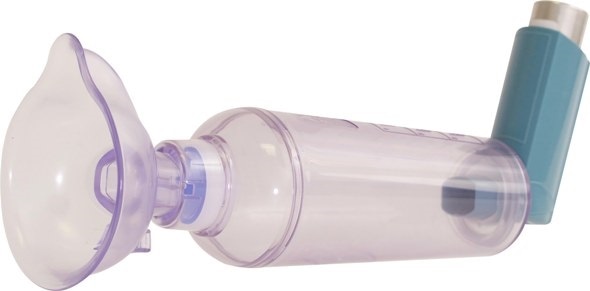A newly validated app called Rafi-Tone, developed by clinicians in the UK, makes using an inhaler with a spacer easier and more fun for young children with wheeze or asthma symptoms. By motivating positive inhaler technique, medication is likely to be far more effective; something that is even more crucial during the Covid-19 crisis as those with asthma are advised to be particularly vigilant about taking their medication as prescribed to ensure optimum control.

The Rafi-Tone app is designed for young inhaler users, enabling parents to overcome the distress often associated with treatment and allowing them to log and monitor use. Rafi Robot, the star of the app, helps to engage the child whilst promoting effective inhaler technique through a series of fun games.
The app was originally developed by a University academic to help his son, Rafi, by using specially designed games and cartoons to encourage and monitor correct inhaler technique. After impressive results in hospital studies, it was further developed by University of Manchester through a spin-out company, Clin-e-cal to produce the current app, which is now available on the NHS Apps Library.
Respiratory infections, often leading to symptoms requiring inhaler treatment, are one of the most common childhood diseases in the world, and are the leading cause of death in children. Asthma UK advises parents that using the correct inhaler and spacer technique reduces their child’s risk of asthma symptoms and potentially life-threatening asthma attacks. However, correct inhaler use can be difficult, particularly with younger children and often results in distress for both the parent and child. This can result in poor adherence and ineffective drug delivery.
A 2019 study found that the Rafi-Tone app has a significant impact on children’s acceptance of their inhaler medication, which could lead to an improvement in reported symptoms and a reduction in A&E and GP appointments. This is especially important in the wake of the Covid-19 outbreak where good control is more important than ever. In the UK, asthma patients have been identified as a high-risk group and advised to be particularly vigilant in maintaining control.
Many parents report problems getting their children to take their asthma medication, especially when using a spacer and mask which goes over the child’s nose and mouth. In order to properly inhale the medication, there must be a firm seal between the mask and the child’s face, and the child must breathe in steadily. Regular medication is necessary to reduce the incidence of symptomatic episodes of respiratory distress.
Problems using a spacer can not only lead to poor adherence and ineffective drug delivery, but also cause significant distress for both parents and children. Many parents report missing doses as a result of their child’s distress.
The Rafi-Tone app was developed using gamification principles to make the process as fun and engaging as possible. In large studies, 51% of children reported becoming upset when using their standard spacer, but this reduced to only 22% by switching to the Rafi-tone system. Similarly, the number of parents confident that the spacer had delivered the right dose more than doubled from 42% to 89%. The study also saw improvements in children’s own perceptions, and strong endorsement from independent specialist nurses who took part in the study.
The Rafi-Tone app is a registered medical device and can be downloaded for free from the Apple App Store (iOS) or Google Play Store (Android) for patients using the Able spacer.